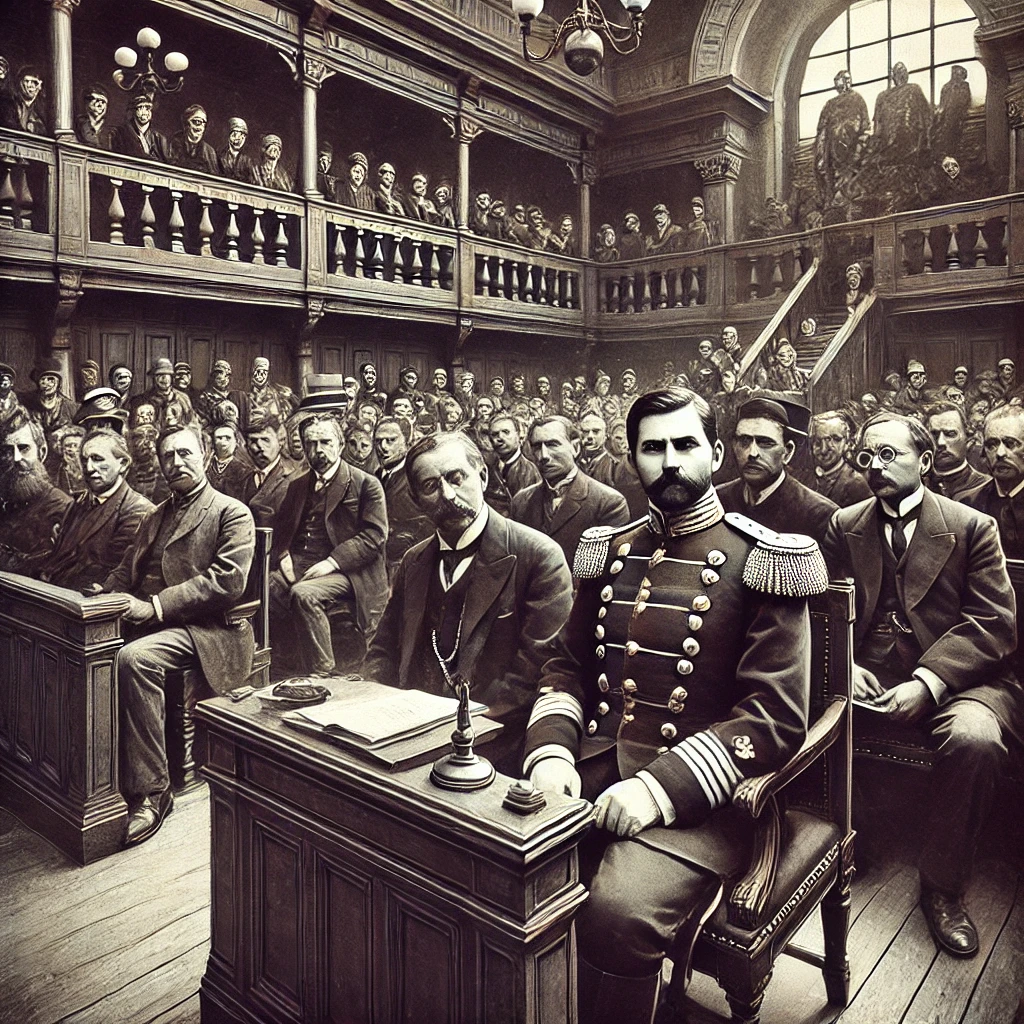The Dreyfus Affair, a political scandal with lasting repercussions, began on December 22nd, 1894, when French Army officer Alfred Dreyfus was wrongly convicted of treason. This infamous case not only exposed deep-seated anti-Semitism within France but also revealed systemic corruption in the military and government. It ignited debates about justice, equality, and national identity, which resonate even today.

A False Accusation with Devastating Consequences
Alfred Dreyfus, a Jewish officer in the French Army, was accused of passing military secrets to Germany. Despite a lack of concrete evidence, he was convicted in a closed-door trial and sentenced to life imprisonment on Devil’s Island, a remote penal colony. The accusation against Dreyfus was largely based on forged documents and fueled by rampant anti-Semitic sentiment in late 19th-century France.
The trial and conviction of Dreyfus polarized French society. On one side were those who supported the military and government, often motivated by nationalist and anti-Semitic ideologies. On the other were advocates for justice and equality, including intellectuals, journalists, and artists, who questioned the integrity of the judicial process.
Public Outcry and the Role of Intellectuals

The Dreyfus Affair reached a turning point in 1898 when Émile Zola, a prominent French novelist, published his famous open letter “J’Accuse…!” in a Paris newspaper. Zola’s letter accused the French government and military of orchestrating a miscarriage of justice and shielding the real culprit to protect their reputations. This bold statement brought international attention to the case and intensified public scrutiny.
Zola’s intervention was instrumental in galvanizing the Dreyfusards, a group of supporters advocating for Dreyfus’ exoneration. Their efforts eventually led to a retrial, where it was revealed that much of the evidence against Dreyfus had been fabricated. Despite the revelation, Dreyfus was convicted again in 1899, albeit with a reduced sentence. It was not until 1906 that he was fully exonerated and reinstated in the military.
Lasting Impact on French Society and Beyond
The Dreyfus Affair profoundly influenced French politics and society. It exposed the pervasive anti-Semitism within the French establishment, sparking widespread debates about civil rights and the role of minorities in society. The scandal also led to significant reforms in the French military and judicial systems, aiming to prevent similar miscarriages of justice in the future.
Furthermore, the Affair highlighted the power of the press and public opinion in holding institutions accountable. It set a precedent for investigative journalism and activism as tools for social change. The case also inspired the founding of organizations dedicated to fighting anti-Semitism and defending human rights, some of which continue to operate today.
A Lesson for Future Generations

The Dreyfus Affair remains a pivotal moment in modern history, serving as a stark reminder of the dangers of prejudice and the importance of upholding justice. It underscored the necessity of a fair and transparent legal system, as well as the courage required to confront systemic wrongdoing. The legacy of the Affair continues to influence debates about equality, justice, and the rule of law.
By examining the Dreyfus Affair, we gain valuable insights into the complexities of societal divisions and the enduring struggle for justice. Its lessons remain relevant, reminding us that vigilance and activism are essential to safeguarding democracy and human rights in any era.
